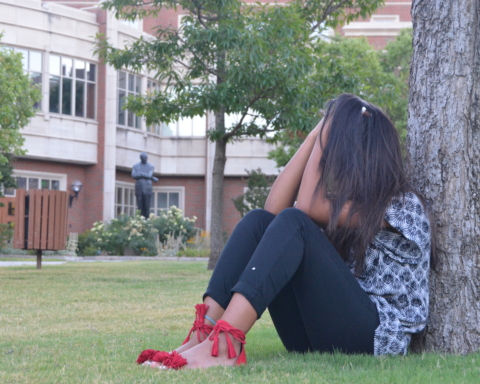College is a stressful time for everyone. Being away from home, finding a job and adjusting to a new atmosphere can be extremely difficult.
However, this stress can be elevated especially among student athletes. In fact, 80 percent of college students say they frequently experience daily stress, according to a 2011 study reported by The OU Daily.
While there are some perks to being a student athlete, there also are downfalls. They not only deal with all the stresses of college life, but also with the demands of collegiate athletics.
For Levi Anderson, captain of the OU men’s gymnastics team, helping keep his team ranked No. 1 in the nation added its own layer of stress.
“It put a target on our backs,” Anderson said of OU going undefeated for three years. “After a while every single team, even the judges, didn’t want us to win.”
He said the team realized that it had to be that much better than the other teams to succeed, piling up pressure to perform well.
Anderson also felt added stress as a captain because everyone is holding you accountable for things inside and outside of the gym, he said.
“Everyone was looking to me,” he said, “to make the right decisions and learn from me.”
Anderson said overall he welcomed this stress “with open arms” and was honored to guide others and share lessons he learned. However, when he felt overwhelmed, Anderson took a step back to evaluate the situation and breathe.
When he felt like he couldn’t handle things, he said he would pull away from the situation and reach out to his parents, hang out with his girlfriend or treat himself to an unhealthy snack.
“I’d take time out and really just check out of gymnastics,” Anderson said.
Another resource used was the Psychological Resources for OU Student-Athletes. PROS is an on-campus resource that offers student athletes personal counseling and therapy with a licensed sports psychologist.
Anderson said the stigma around mental health has changed tremendously in recent years and now it’s easier for athletes to talk about their mental wellness and get help, he said.
Even though Anderson no longer competes, he said coaches prioritize mental health, and that he is always around as a “father figure” for the team.





